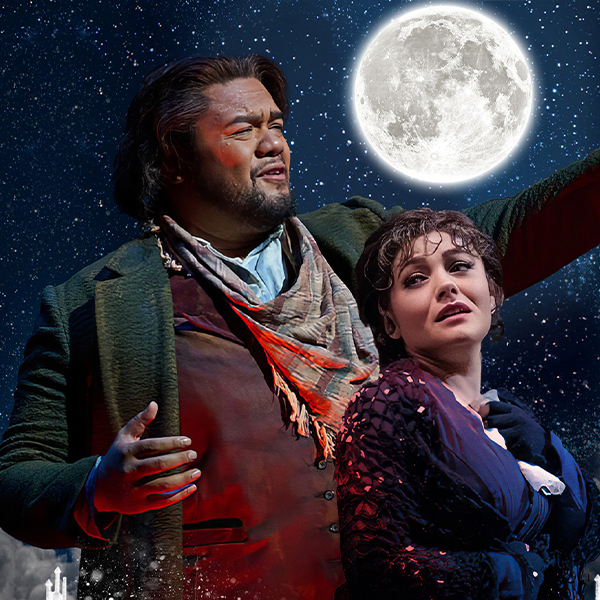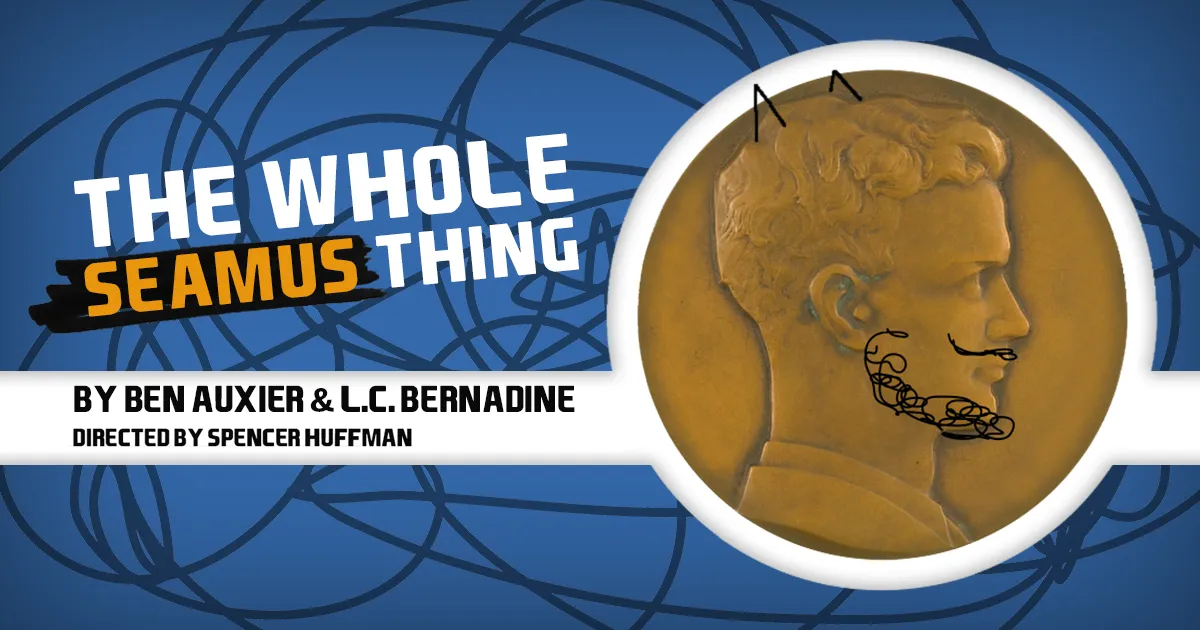
Highly Recommended
Yes, this is the opera where the young lady with the bad cough dies at the end. Puccini’s classic has often been spoofed but it is also the inspiration for the popular rock musical, RENT.
In this production of La Bohème directed by Chicago native Melanie Bacaling at Lyric Opera of Chicago, Maestro Jordan de Souza conducts tenor Pene Pati (Rodolfo) in his Lyric debut, with Ailyn Perez, soprano (Mimì), Gabriella Reyes, soprano (Musetta), Will Liverman (Marcello), Peixin Chen (Colline), Ian Rucker (Schaunard), Levi Hernandez (Benoit & Alcindoro), Travon D. Walker (Parpignol), Uniting Voices Chicago, and the Lyric Opera Orchestra and Chorus.
First, a little background. The term La Bohème or Bohemian, in English, was assigned to anti-establishment artists and intellectuals who were free thinkers. Indeed, the very image of starving artists are the focus of the story. Often living in poverty, they could be found residing in cheap lodgings in the Latin Quarter of Paris during the later part of the 19th century when this story takes place.
In Act One, we learn that Rodolfo, Marcello, Colline and Schaunard are four young men sharing a garret in Paris. Each member of the Bohemian quartet is laboring at his own intellectual or artistic pursuit while struggling to keep a fire in their little stove during this cold winter.
Schaunard, the musician, announces that he has raised enough money for some meager groceries and treat them all to dinner. As they leave Rodolfo says he will catch up with them after he finishes his project.
There is a knock at the door. Neighbor Mimi enters and asks Rodolfo if he might light her candle which has gone out. Rodolfo is immediately smitten with the young woman.
While speaking Mimi realizes she has dropped her key. In the process of searching for it, both candles are extinguished and the two are left fumbling in the dark. They share their life stories and fall immediately in love.
Act Two introduces us to “party girl” Musetta who loves life and sometimes loves Marcello. A colorful street scene and café society provides a distinct counterpoint to the squalor of the bohemian’s garret. The scene depicts the high energy public life in the Latin Quarter where both rich and poor meet and mingle offering opportunities of every kind.
Act Three is several months later. Rodolfo and Mimi have been living together in the garret and Marcello has moved above a local inn with Musetta. It is dawn and Mimi comes to the inn in search of Rodolfo who has not come home. She overhears Rodolfo confess that he wants to break off his relationship with her, primarily because he is concerned for her health and cannot bear to see her fade away.
In Act Four the worst-case scenario comes to pass. Mimi is indeed dying and shows up at the garret to be with Rodolfo. They have always been in love even during their separation.
Everyone pitches in to make Mimi as comfortable as possible but she tragically succumbs to her illness and Rodolfo is grief stricken as the show concludes.
I was in the audience opening night of Pene’s Lyric debut in what promises to be a notable career. The Samoan tenor’s soaring high notes provided the requisite drama and intensity to his portrayal of Rodolfo. It perfectly complimented the beautiful tones of Chicago’s own soprano, Perez.
Though still very much in the traditional vein and rather dark, this new set design by Gerald Howland did feel fresh and visually appealing. The Eiffel Tower depicted in the distance is not quite complete. As it was built for the 1889 World’s Fair this firmly and cleverly sets the action in 1888.
The garret section, where much of the action takes place, was set too far back and with it being a small enclosure it seemed to inhibit the volume of the voices. This is compounded by the fact that the arias sung from that position on stage also happen to be more intimate moments that are sung mezza voce.
Also, I am not sure where Mimi’s apartment is located. Seemingly Rodolfo and his companions are on the top floor so where did she come from? When she enters, the door is left open even though it is unbearably cold outside and there is no apparent inner hallway.
In terms of lighting when the candles go out there is no shift in light onstage. We have to rely on them to tell us they are in darkness. Then we learn at one point that they are operating by moonlight but where is that coming from and why don’t we see it?
All of these anomalies can be easily overlooked but staging, lighting, costumes and props should help to support the story and fill in some of the gaps that the lyrics, dialogue, and action do not specifically express. This is especially true of opera where language can already be a barrier.
Rather than rely on the prompter to tell me about the darkness of the room and subsequent moonlight I have liked to see it.
The colorfulness of Act Two offers an energetic background for the introduction of Musetta. Toy seller Parpignol, together with twenty youngsters from Uniting Voices Chicago (formerly Chicago Children’s Choir) provided the necessary contrast needed to keep the theme of the production from being all doom and gloom and too oppressive.
I personally love the timbre of the children’s voices blended with those of the robust Lyric Chorus.
Soprano Gabriella Reyes as Musetta was requisitely flirty and sensual but director Bacaling might have helped her out a bit regarding the implementation of her little dance on the chairs. The intention of this activity is to show Musetta as completely unconventional and free spirited but came across as contrived, awkward, and potentially dangerous – – losing some of its spontaneity.
The problem with having seen a few productions of La Boheme is that I cannot help making comparisons. I first saw this opera at The Met sometime around 1980 and Act Three is indelibly burned into my memory.
The deep stage allowed a hundred chorus members and supernumeraries to file slowly up a hill and through the city gates at dawn while the snow endlessly drifted down. I felt like we were outside in the middle of Central Park.
Howland’s set design in Act Three is more intimate, reminiscent of Lyric’s 2019 version and that’s not bad, just different. Without the comparable I think I would be fine with it – – and by the way the snow was very effective.
I did like the look of Musetta and Marcello’s apartment above the inn and the location of the interaction of the characters in this scene being front and center with a small tree as a reference point.
This created a more believable visual for the idea that Mimi is overhearing the conversation between Marcello and Rodolfo. In other productions I’ve seen the performers seemed lost in a vast void. So, this is an improvement.
As always, the Lyric Orchestra led by Maestro Jordan de Souza was outstanding.
La Bohème is a story of youth, passion, love and loss where idealism comes face-to-face with life’s realities such as poverty, illness and death.
It is a very accessible opera for those who may not have much familiarity with this theatrical or musical art form. It was very satisfying to see a number of young people in the audience, no doubt a result of the sizeable participation of youngsters on stage.
I was introduced to opera in my youth through my mother who sang in an amateur opera company giving me an opportunity to appear on stage in a non-singing role in a few of their operas and also as a “super” at The Lyric when I was about ten years old. These experiences have contributed to my enjoyment all these years later.
If you’ve seen La Bohème before, you will no doubt enjoy this performance. If you are unfamiliar with this particular opera or opera in general, this is a perfect opportunity to experience something new and maybe bring a young person with you.
DETAILS: “La Bohème”is at the Lyric Opera House, 20 N. Wacker Drive, Chicago, through April 12, 2025. It is sung in Italian with easy-to-follow English translation projected above the stage. Running time is 2 ½ hours with one intermission. For tickets and other information call (312) 827-5600 or visit LyricOpera.org/boheme
Reno Lovison
For more reviews visit Theatre in Chicago










